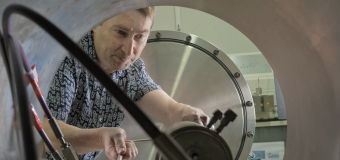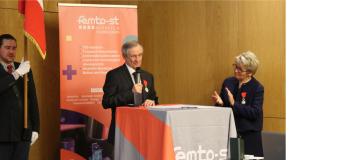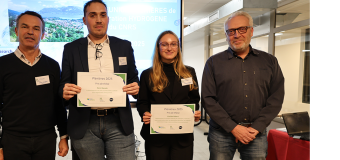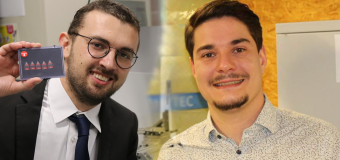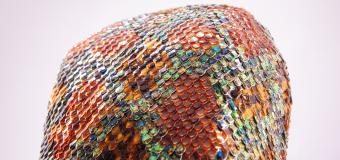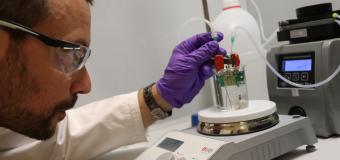Robotic assembly of the smallest house in the world
the handling and assembly capabilities of nanocomponents of the "μRobotex" platform make the buzz on the net and in the international press through the origami manufacturing of a micro-house at the end of an optical fiber whose dimensions are less than the diameter of a hair.
The "nanorobotics" team of FEMTO-ST institute has in fact developed a new microrobotics system that pushes forward the frontiers of optical nanotechnologies. Combining several existing technologies, the μRobotex platform builds microstructures in a large vacuum chamber and attaches components to optical fiber tips with nanoscale precision.
The construction of the micro-home (size: 20 * 10 * 15μm), reported in the "Journal of Vacuum Science and Technology A", shows how researchers can advance optical detection technologies when handling ion guns , electron beams and finely controlled robotic piloting.
Until now, lab-on fiber technologies did not have robot actuators for nano-assembly, which prevented engineers from building microstructures. This innovation makes possible to install miniaturized sensing elements on fiber tips so that engineers can see and manipulate different components.
With this advance, optical fibers as thin as human hair can be inserted into inaccessible places like jet engines and blood vessels to detect radiation levels or viral molecules.
By using this platform called "μrobotex"almost unique in the world, FEMTO-ST engineers are now building functionalized microstructures to detect specified molecules by attaching their microstructures to optical fibers.
The "nanorobotics" team hopes to push the frontiers of technology even further, by building smaller structures and fixing them on carbon nanotubes of only 20 nanometers to 100 nanometers in diameter.
Many media have highlighted this feat, which also received a tweet of congratulations from Frédérique Vidal, The French Minister of Higher Education and Research.



